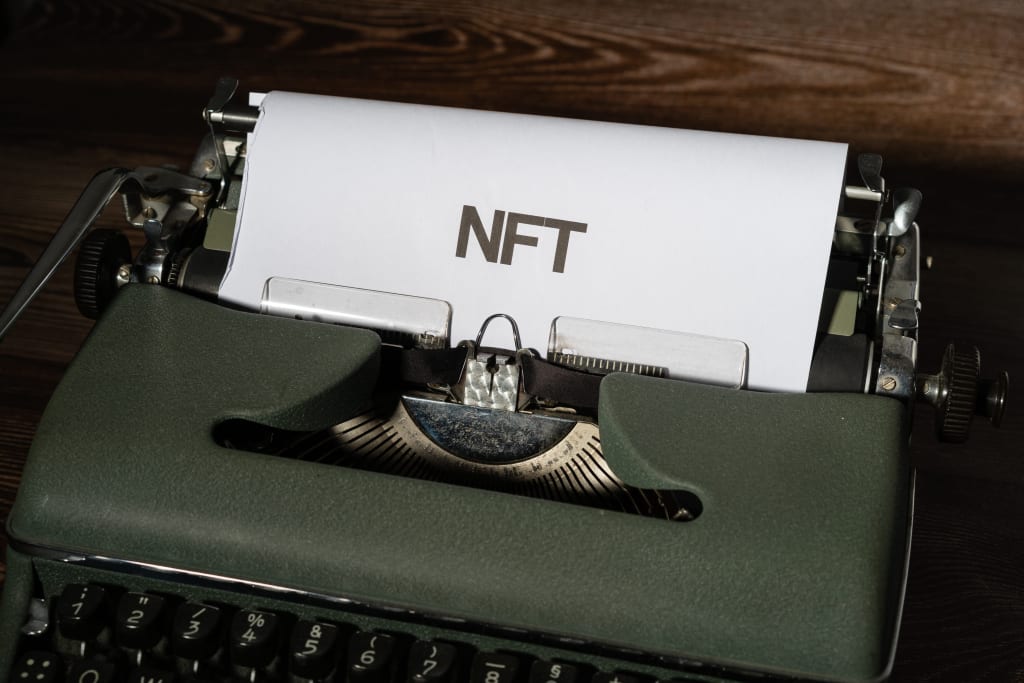The Ethics of NFTs: Ownership, Authenticity, and Fair Compensation
An Ethical Exploration of NFTs and Their Implications for Artists, Collectors, and the Art World

The rise of non-fungible tokens (NFTs) has been one of the biggest stories in the art world in recent years. These digital assets offer a new way for artists to monetize their work, but they also raise a number of ethical questions around ownership, authenticity, and fair compensation. In this article, we will explore some of the ethical considerations surrounding NFTs and their impact on the art world.
Ownership and Authenticity
One of the key benefits of NFTs is that they offer a way for artists to prove ownership and authenticity of their digital work. In a world where digital art can be easily copied and distributed without the artist's consent, NFTs provide a way for artists to create a unique, verifiable record of ownership. This can be particularly valuable for artists who create digital works that are intended to be one-of-a-kind, such as limited-edition prints or unique digital sculptures.
However, there are also concerns around the potential for NFTs to be used to facilitate fraud or misrepresentation. Without proper safeguards in place, it is possible for someone to create an NFT of a digital work that they do not own, or to create a fake NFT that purports to represent a valuable piece of digital art. This raises questions around the responsibility of NFT marketplaces and platforms to ensure that the NFTs being sold are legitimate and represent the true ownership of the underlying digital asset.
Fair Compensation
Another ethical consideration surrounding NFTs is the issue of fair compensation for artists. While NFTs offer a new way for artists to monetize their work, there are concerns that this technology could exacerbate existing inequalities in the art world. For example, if only a small number of artists are able to create NFTs that sell for significant sums, it could further entrench existing power dynamics in the art market.
There are also questions around the role of NFT marketplaces and platforms in ensuring that artists are fairly compensated for their work. Many NFT marketplaces charge significant fees for the creation and sale of NFTs, which could eat into the profits of artists. There are also concerns that the lack of regulation around NFTs could make it difficult for artists to protect their interests and ensure that they are receiving fair compensation for their work.
Environmental Impact
Another ethical consideration surrounding NFTs is their environmental impact. The creation and sale of NFTs requires a significant amount of energy, which can have a negative impact on the environment. This has led to criticism from some quarters that NFTs are contributing to the climate crisis, and that the art world should be more mindful of its environmental impact.
There are also concerns around the potential for NFTs to be used to launder money or facilitate other illegal activities. While NFT marketplaces and platforms have taken steps to prevent these types of activities, there are concerns that the lack of regulation around NFTs could make it easier for criminals to use this technology to their advantage.
Conclusion
The rise of NFTs has opened up a whole new world of possibilities for artists and collectors alike. However, it is important to recognize that this technology also raises a number of ethical considerations around ownership, authenticity, fair compensation, and environmental impact. As the art world continues to grapple with these issues, it will be important for artists, collectors, and other stakeholders to work together to ensure that NFTs are used in a responsible and ethical manner. Ultimately, the success of this technology will depend on its ability to foster greater transparency, fairness, and accountability in the art world.
About the Creator
Balla Adorján
As a writer, I understand the importance of tailoring my writing style to suit the needs of the specific project, whether that be a formal academic article or a fun and lighthearted blog post.
Enjoyed the story? Support the Creator.
Subscribe for free to receive all their stories in your feed. You could also pledge your support or give them a one-off tip, letting them know you appreciate their work.






Comments
There are no comments for this story
Be the first to respond and start the conversation.